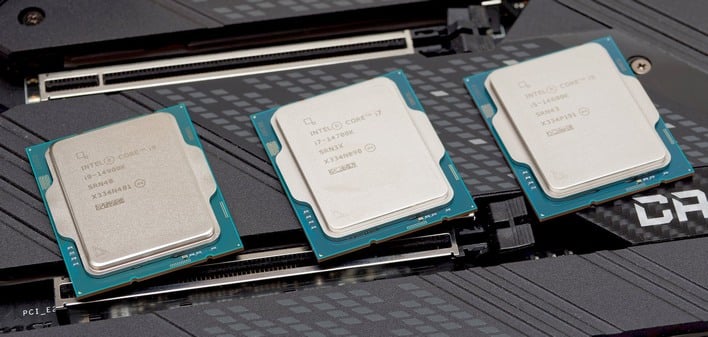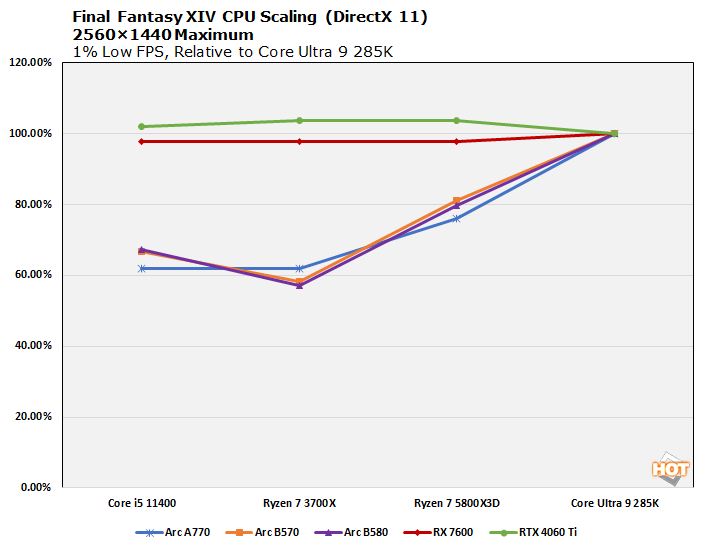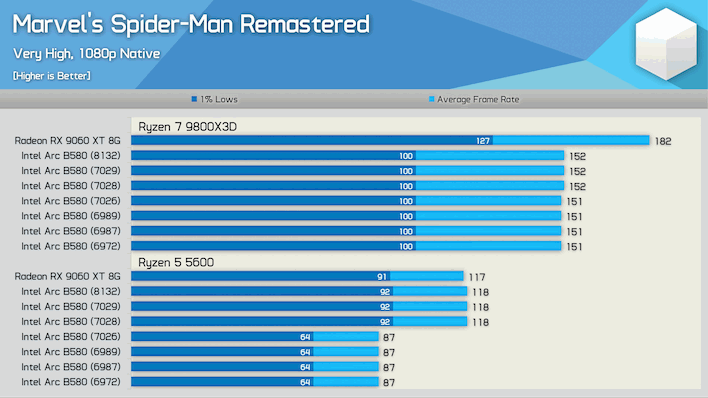Intel Arc Driver Ditches Old CPUs But Gives Slower Chips A Big Boost
Starting September 19, 2025, Intel moved the integrated GPUs inside 11th through 14th Gen Core processors into a "legacy software support" phase. That includes Rocket Lake, Alder Lake, Raptor Lake, and the still pretty-fresh Raptor Lake Refresh lineup. That means every single Intel desktop CPU besides the most recent Arrow Lake generation.

What that means in practice: no more Day 0 game support, no new features, no optimizations. Updates will be limited to quarterly drops of security patches as well as, potentially, mid-period updates for critical issues. It's a blunt cutoff, especially given that 14th-Gen Core CPUs only launched in late 2023. Intel's reasoning is clear—these iGPUs were never much of a gaming option, and the company wants users to look at its Arc discrete GPUs instead.
Current Arc products like the Battlemage B570 and B580, as well as the Arc Pro B50 and B60 cards that are getting rave reviews from professional users, continue to receive full driver attention with ongoing feature updates and optimizations. Intel is clearly drawing a line: integrated graphics are "good enough" for desktop basics, but gaming support is focused on Arc.
That renewed focus just paid off in a big way, too. Recent testing of the Arc B580 with Intel's latest driver set by Hardware Unboxed revealed huge gains on slower CPUs—precisely the kind of systems where Arc struggled before.

The background here: ever since launch, Arc GPUs suffered from a notorious "CPU overhead" problem. With weaker processors, like AMD's Ryzen 5 2600 or even the very popular Ryzen 5 5600, Arc cards left significant performance on the table compared to Radeon and GeForce rivals. That meant budget gamers—the very audience Arc was aimed at—got a raw deal.
We verified this issue ourselves in our review of the Arc B570, where our benchmarks showed Arc cards falling 20–30% behind where they should have been, even in CPU-limited situations, simply due to driver inefficiencies. The problem was so obvious that Intel publicly admitted to it back in the spring, promising a fix.
Now it seems the blue team has delivered. With driver version 7028, released in late August, performance on the Ryzen 5 5600 jumped by as much as 36% overnight in titles like Cyberpunk 2077. That shift closed the gap with AMD's Radeon RX 9060 XT, effectively erasing the overhead penalty on mid-range CPUs in that game. Older chips like the Ryzen 5 2600 still struggle in some titles, but for anyone on a three-year-old CPU or newer, the problem is largely gone in the majority of tested games.
Put together, Intel's message is clear: the company is pruning back its driver commitments where it doesn't see a need for constant iteration (integrated graphics) while redoubling its efforts on Arc. That may sting for recent Core buyers who thought they had a few more years of fresh support, but it's undeniably good news for budget gamers who finally get to see Arc GPUs perform as intended on affordable CPUs.
The B580 in particular now looks far more competitive at its $250 price point, especially since it packs 12 GB of VRAM compared to the 8 GB standard on rival cards. Intel's driver team still has work to do—the overhead issue isn't gone everywhere—but Arc is really starting to feel less like a risky experiment and more like a serious competitor in the graphics market. Intel told us that it is committed to its current roadmap, which means we're almost assuredly going to see Xe3 "Celestial" discrete GPUs, but here's hoping Intel doesn't kill the Arc brand after that.



